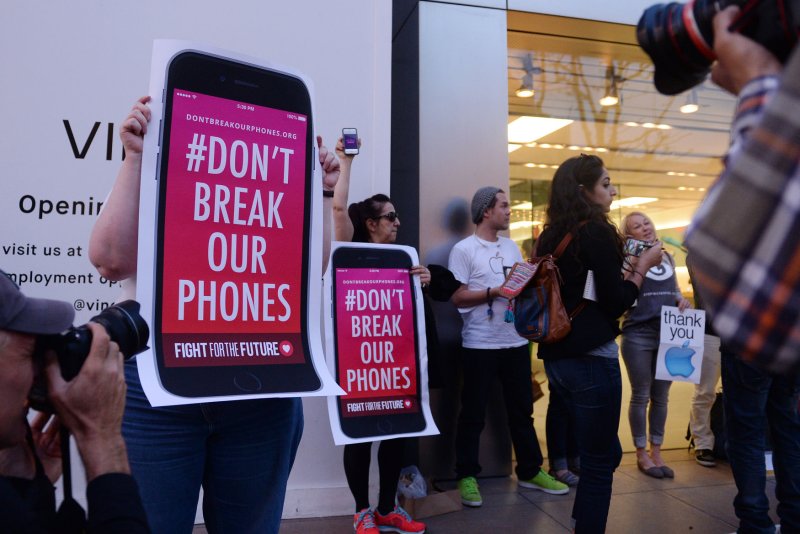WASHINGTON, Feb. 24 (UPI) -- Apple has revealed the FBI demanded the company's help to unlock iPhones at least a dozen times since last fall, reinforcing the tech giant's argument that the FBI's request in the San Bernardino massacre case will lead to further applications.
In a letter unsealed in federal court Tuesday, Apple's lawyers revealed the company received FBI demands to unlock iPhones in California, Illinois, Massachusetts, Ohio and New York for devices ranging from iPhone 3s to an iPhone 6 Plus, which has increased security and privacy measures.















